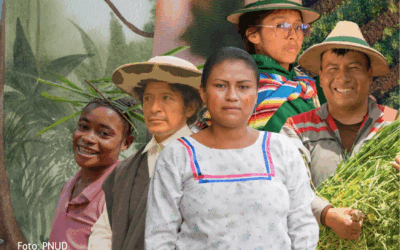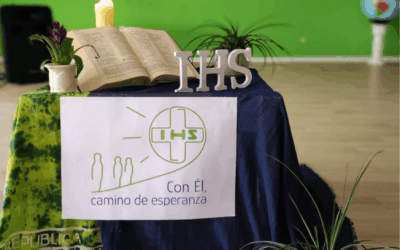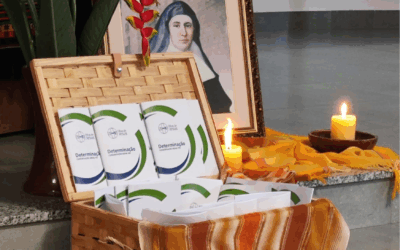As a Catholic Church we celebrate the Jubilee of Migrants on October 4 and 5, 2025 in Rome. This event is designed for the faithful to experience God’s mercy in a special way. During these days, it seeks to highlight the presence of migrants as bearers of resilience and hope for our Church. In a world where they are often undervalued, Christians are invited to celebrate their valuable contribution to society and the hope they bring to the communities that welcome them. This Jubilee is an opportunity for us, as Catholics, to engage in acts of mercy in our daily lives.
Daughters of Jesus and migrants
As Daughters of Jesus, we join in this Jubilee, recognizing the face of Christ in our migrant brothers and sisters, and renewing our commitment to welcome, protect, promote, promote, integrate . In a special way, we want to make visible the many communities of Daughters of Jesus throughout the world that are engaged in various apostolic works with migrants and refugees:
- In the Province of Spain-Italy, many sisters collaborate in parish Caritas in the reception and distribution of food to migrants (Catalonia, Burgos, Elche, Madrid, -Orcasur and Berrospe-) and in the archpriesthood (Burgos). In Elche, we also participate in the Elche Acoge association. In a special way, some sisters collaborate in Spanish classes for migrants in Almeria, Catalonia, Madrid (Usera) and Seville. In addition, in Roquetas de Mar (Almeria), through the intercultural women’s association Nakani, they promote programs of accompaniment for both women and men living in apartments managed by the association and sewing workshops. In Granada, we collaborate with the INLAYAPAS association, an inter-congregational project of welcome, labor insertion and accompaniment of migrants through workshops and English classes. In Madrid, some sisters are volunteers in the Puente de Esperanza association, providing various services.
- In the Province of Brazil-Caribbean, the community of the “Maria de la Lucha” House in Santo Domingo is dedicated to the pastoral care of migrants.
- In the Indian-Pacific Province, our communities in Japan actively collaborate in pastoral work with Brazilian, Latin American and other immigrants in the dioceses of Tokyo and Yokohama.
- In the East Asia Province, the sisters in Mae Hong Son (Thailand) work directly with the Jesuit Refugee Service (JRS), coordinating the pastoral accompaniment of refugees in the camps.
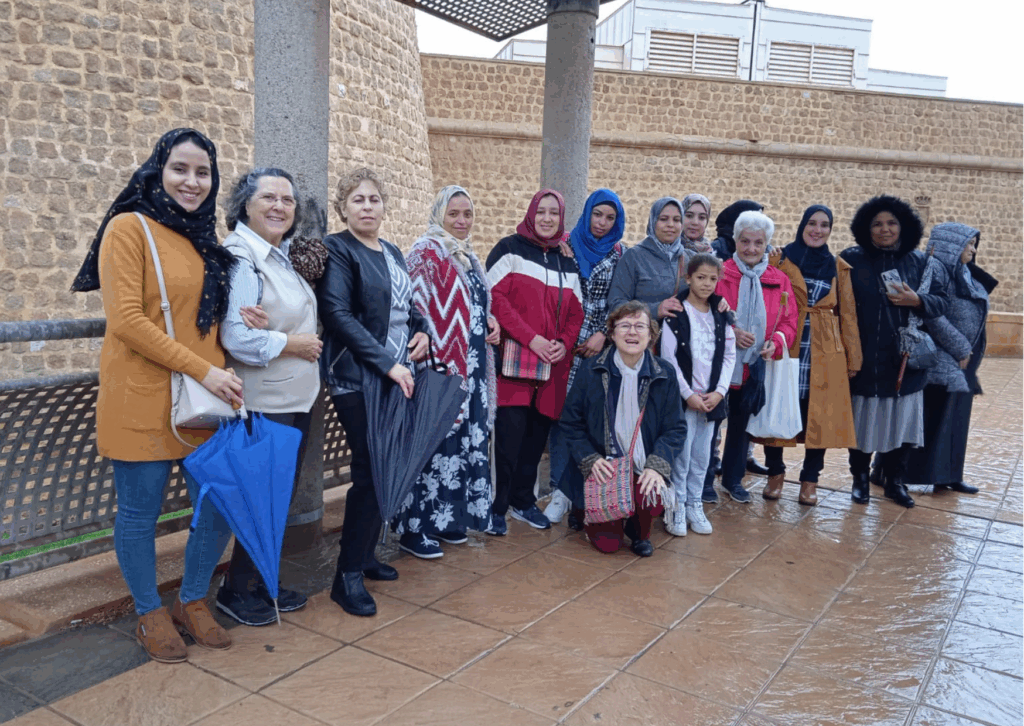
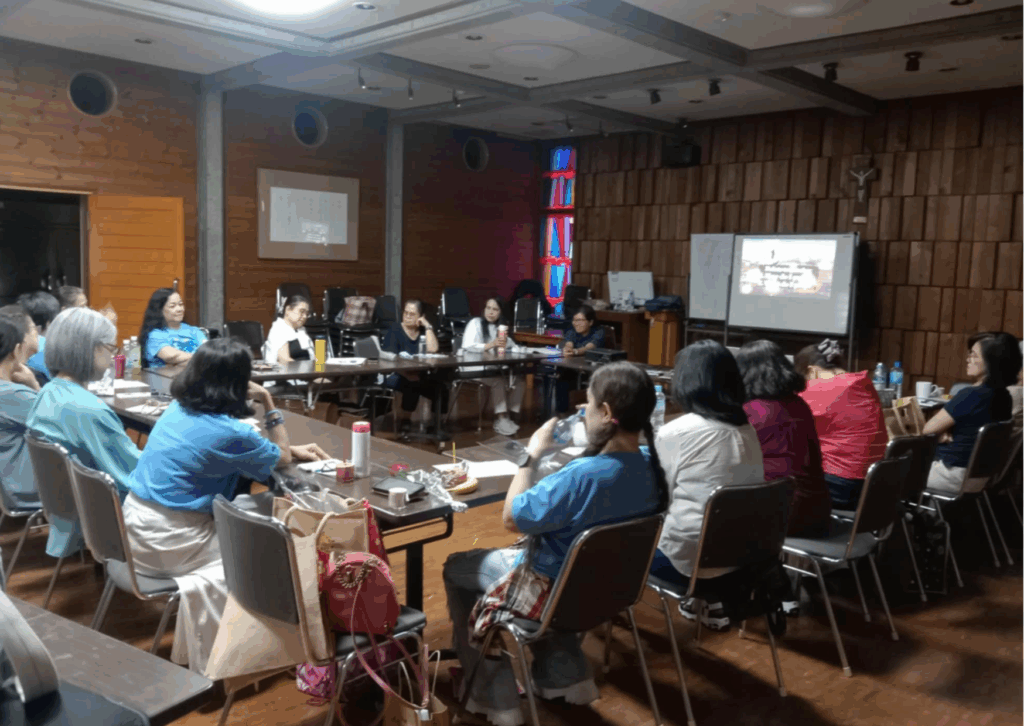
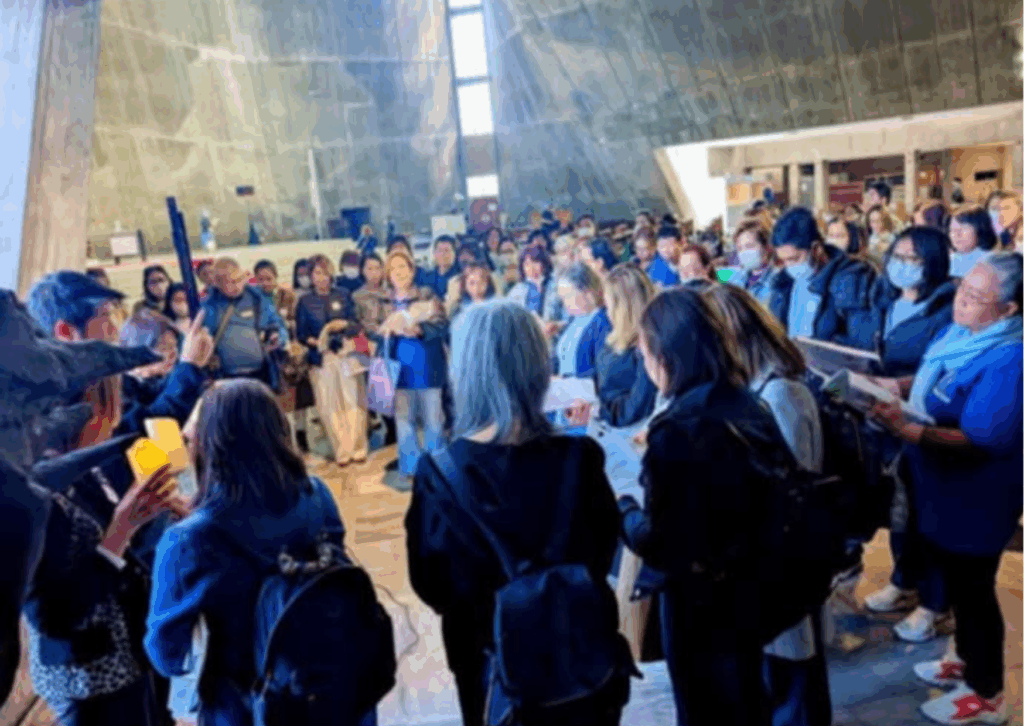
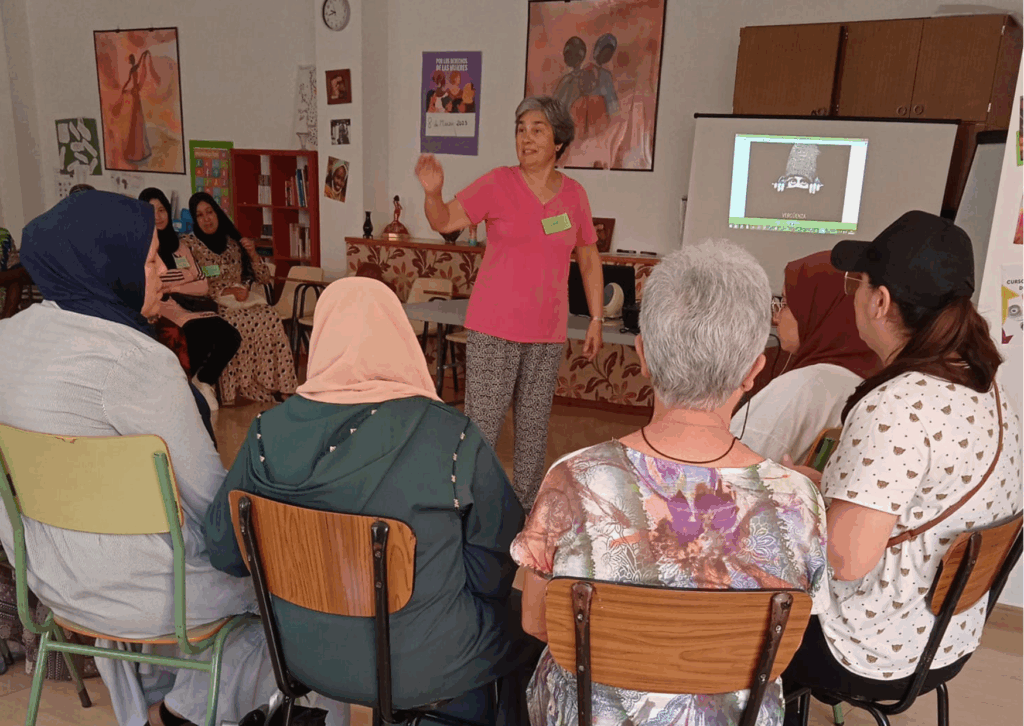
FASFI Projects
On the other hand, the Daughters of Jesus Solidarity Aid Foundation (FASFI) promotes and supports different projects, among which we can highlight especially the initiative with migrants, some projects of 2025 are:
- We walk together (Almería). Its objective is: “To welcome, guide, train and contribute to the insertion of immigrants at risk of social exclusion in Almeria, through active listening, temporary shelter and activities that favor their full inclusion in society. In collaboration with the association Nakani”.
- Communication and integration(Lleida) To collaborate in the training and learning of the Spanish and Catalan language of the immigrant community, in order to achieve effective communication and adequate socio-cultural and labor integration.
- Comprehensive training for families and migrants(Venezuela) Support the Asociación Civil Familia Madre Cándida Venezuela to provide quality health services and medical attention to vulnerable populations, especially Wayuu and Colombian-Venezuelan families. Insert children, adolescents, young people, university students and adults into the educational system and promote female and youth leadership.
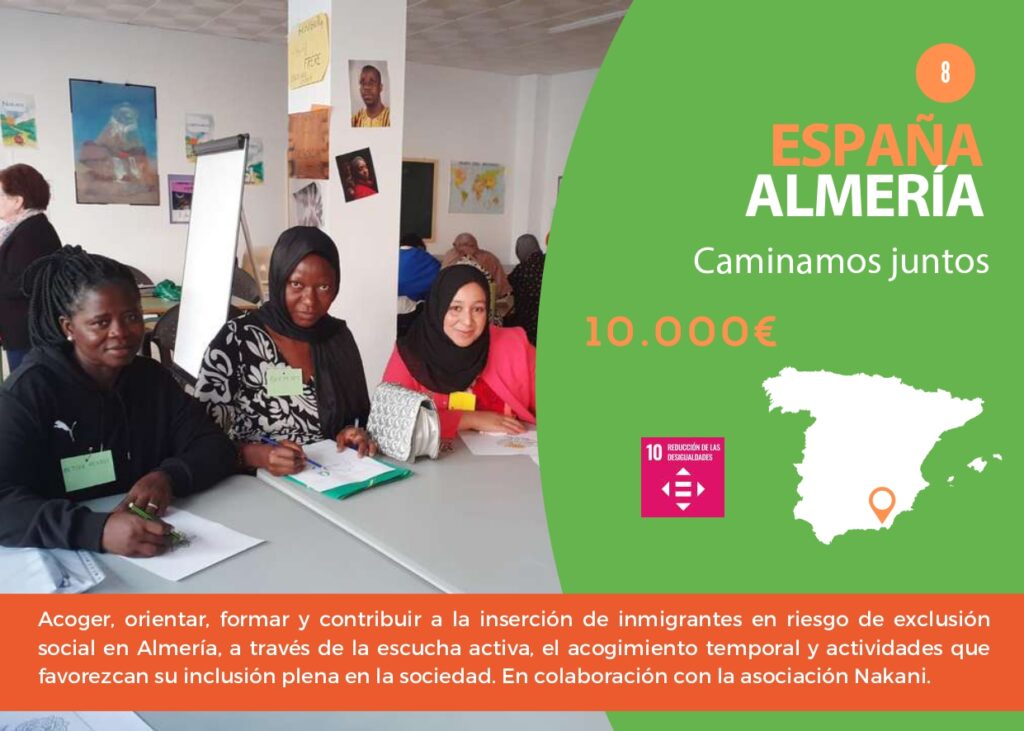
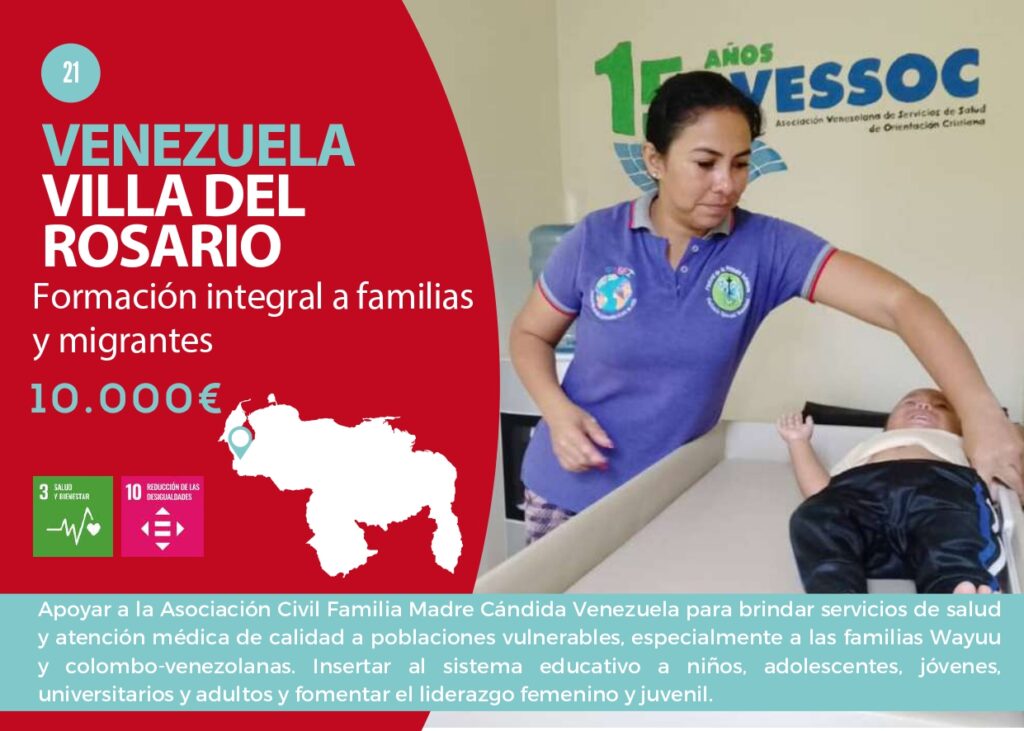
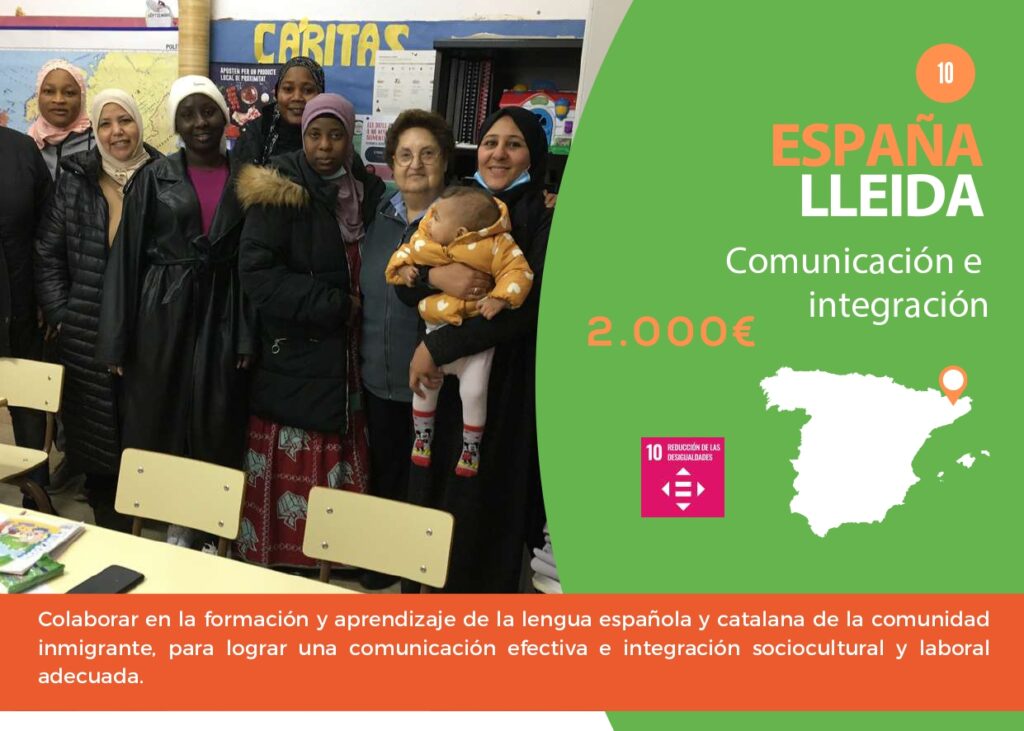
Human mobility in the determination
This commitment to migrants flows directly from our identity. The determination of General Congregation XIX reminds us that, from the awareness of our filiation, we feel called to participate actively in networks of care. It is this experience of knowing ourselves to be daughters that impels us to unite ourselves to those who work for the most disadvantaged, especially for those who are forced to leave their places of origin: migrants, refugees and displaced persons. Their situation challenges us deeply and moves us to seek concrete forms of solidarity and support, recognizing in each one a brother or sister.
This Jubilee challenges us
Considering that the Jubilee invites us to see migrants as “bearers of hope,” in what ways have the migrants I have met or heard about been a sign of resilience and hope for me or my community?
From my own experience of affiliation, how can I respond to the call to weave “networks of care” and seek concrete forms of solidarity with migrants and refugees in my immediate environment?

